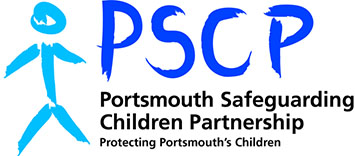Looked after children
A child who has been in the care of their local authority for more than 24 hours in known as a looked after child. Looked after children are also often referred to as ‘children in care’.
Children can looked after by agreement with parents or by order of a court. Most children in care are safe from harm and do well, however for some there are particular risks.
Children who are looked after may be living:
- with foster parents;
- at home with their parents under the supervision of Children’s Social Care;
- in a residential children’s home;
- with extended family members (known as kinship placements);
- with friends of the family (also known as non-relative placement); or
- other residential settings like schools or secure units.
Therefore, even though the child is looked after, they may not be living in what may be traditionally seen as a “care” environment.
A child stops being looked after when they are adopted, return home or turn 18. However local authorities are required to support children leaving care at 18 until they are at least 21. This may involve them continuing to live with their foster family.
The main reason for children being in care remains as a result of abuse and neglect. Other reasons for being looked after include:
- family dysfunction (England: 15%)
- family in acute stress (England: 8%)
- child’s disability (England: 3%)
- parent’s illness or disability (England: 3%)
- socially unacceptable behaviour (England: 1%)
Children in care have many different experiences prior to becoming looked after, and this increases their vulnerability.
Children who are looked after often face more vulnerabilities and a number of additional risks, which can include:
- being bullied or abused by peers;
- more likely to be the target of sexual exploitation;
- significantly more likely to run away from home;
- misusing substances due to early life experiences;
- suffering social, emotional and mental health difficulties due to trauma &/or separation and loss;
- having some form of developmental delay;
- potentially having issues with their identity;
- greater risk of offending behaviour;
- risk of educational failure and exclusion;
Research shows that many of these risks are reduced when there is stability in placement with good professional support from a range of agencies.
Schools play a key role in protecting children in care. Although every school should have a designated teacher for looked after children, it is everyone’s responsibility to make sure that children who are looked after are safeguarded.
- Be aware of signs of abuse and neglect.
- Be aware of vulnerabilities of children in care.
- Focus on the individual needs of the child.
- Know what the specific plans are for any looked after child that you are responsible for.
- Listen to the child’s voice and act upon it.
- Work collaboratively with other agencies.
- Report any concerns to the designed safeguarding lead and follow your safeguarding procedures.
Health providers need to be aware that looked after children are over four times more likely to have an emotional or mental health need than their non-looked after peers. Local authorities and commissioners and providers of healthcare have statutory duties to co-operate to ensure that looked after children have their health needs fully assessed.
It’s important for professionals to support the child’s birth family, to address the problems which resulted in the child entering care. In time, many children can return home to their family but even if this is not possible their birth family are still likely to be a central part of their lives.
The quality of contact a child has with their birth family can have an impact on their wellbeing, so it’s important to support children to have safe, positive contact with their birth families if the child wants to. Strengthening family relationships is an essential part of planning for children to rebuild their relationships with their family for future.
- Corporate Parenting
- Fostering
- Independent Reviewing Officers (IRO) and the LAC Review Process
- Life Story Guidance
- Life Story Work and Embedding for all Children in our Care
- Pathway Plans
- Placement Planning
- Placement Stability
- Private Fostering
- Public Law Outline (PLO)
- Regulation 44 Visits
- Staying Close Aspiration Project 2022
- Trauma Informed Model of Care (TIMOC)
- HIPS Procedure for looked after children and other children living away from home
- HIPS Procedure for protecting children who move across local authority borders
- Dept. for Education guidance on promoting the education of looked after children and previously looked after children
- Dept. for Education guidance for the Designated Teacher for looked after children and previously looked after children
- Dept. for Education guidance on reducing criminalisation of looked after children
- Dept. of Health and the Dept. of Education guidance on the planning, commissioning and delivery of health services for looked after children
- Royal College of Nursing & RCPCH Intercollegiate Document – looked after children: roles and competencies of healthcare staff
- NICE quality standard for looked after children and young people
- Children Act 1989: private fostering – Statutory guidance for local authorities on safeguarding and promoting the welfare of privately fostered children.
Children in Care Council – a group of young people dedicated to improving the services in Portsmouth provided for looked after children, as well as care leavers.
The Really Useful Book of Learning and Earning (RUBLE) for Care Leavers – provides information, advice and activities to help care leavers get used to living independently and make decisions about education and work.
